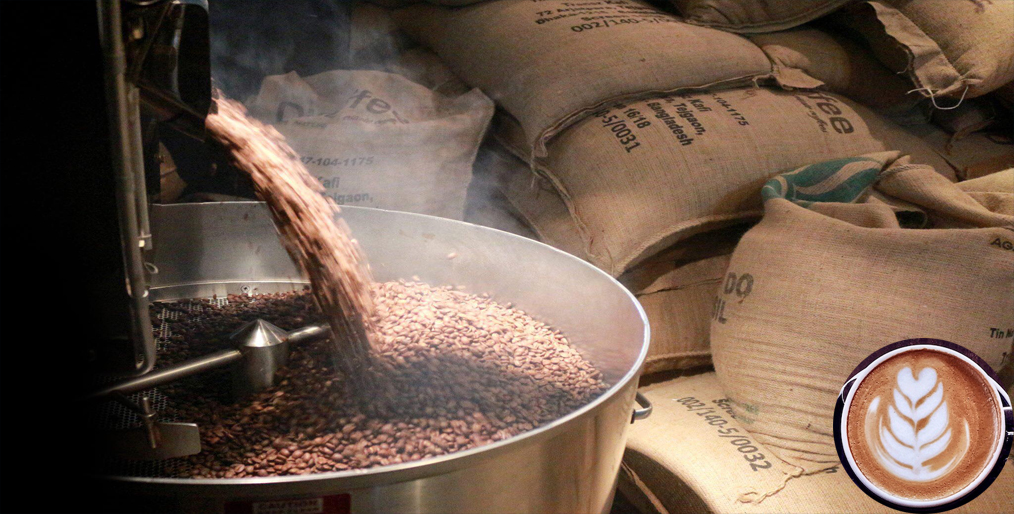
[caption id="attachment_6475" align="aligncenter" width="1014"] Picture: Collected[/caption]
At present world class coffee is being produced in Bandarban, Khagrachhari and Rangamati districts of Chittagong Hill Tracts in Bangladesh.
Coffee from the region can be similar to coffee from Central and South America, says Rick Hubbard, founder and managing director of North End Coffee Roasters
There was little known information about Bangladesh, that coffee can be grown here. From that idea, coffee cultivation was started in the region at the beginning of the century by handing over a few coffee seedlings to the farmers of the Chittagong Hill Tracts.
But the initiative did not get momentum a decade later, when Rick Hubbard, an American national who was previously a roast master with global coffee giant Starbucks, set up North End Coffee Roasters.
“There was no focused effort before that. We started the move to make coffee a commercial crop,” Hubbard told.
From handing out saplings to training farmers on processing the coffee cherry, Hubbard has been involved every step of the way, often collaborating with non-governmental organizations for the end.
“Instead of 20 trees, we said, ‘let’s have 1,000 trees’. We bought seedlings for farmers. That was probably our contribution.”
Today, coffee is grown in three districts of Chittagong Hill Tracts on a large scale -- Bandarban, Khagrachhari and Rangamati -- and in Tangail, Rangpur and Nilphamari on an experimental basis.
And Hubbard’s North End buys almost all the coffee that is grown in Bangladesh, 90 per cent of which is in Bandarban.
“For the first 3-4 years, we were buying coffee that we could not sell as the cherries were picked before they were ready. We still bought them to encourage the farmers.”
Coffee cherries, which encases the coffee bean, need to be picked only when they are bright red in colour and fully ripe. The cherries are then peeled, dried out in the sun and then processed.
North End purchases a kilogram of “passable quality” coffee beans for Tk 300 and good-quality ones for Tk 320, which Hubbard says is higher than the Fair Trade prices.
[caption id="attachment_6476" align="aligncenter" width="1014"]
Picture: Collected[/caption]
At present world class coffee is being produced in Bandarban, Khagrachhari and Rangamati districts of Chittagong Hill Tracts in Bangladesh.
Coffee from the region can be similar to coffee from Central and South America, says Rick Hubbard, founder and managing director of North End Coffee Roasters
There was little known information about Bangladesh, that coffee can be grown here. From that idea, coffee cultivation was started in the region at the beginning of the century by handing over a few coffee seedlings to the farmers of the Chittagong Hill Tracts.
But the initiative did not get momentum a decade later, when Rick Hubbard, an American national who was previously a roast master with global coffee giant Starbucks, set up North End Coffee Roasters.
“There was no focused effort before that. We started the move to make coffee a commercial crop,” Hubbard told.
From handing out saplings to training farmers on processing the coffee cherry, Hubbard has been involved every step of the way, often collaborating with non-governmental organizations for the end.
“Instead of 20 trees, we said, ‘let’s have 1,000 trees’. We bought seedlings for farmers. That was probably our contribution.”
Today, coffee is grown in three districts of Chittagong Hill Tracts on a large scale -- Bandarban, Khagrachhari and Rangamati -- and in Tangail, Rangpur and Nilphamari on an experimental basis.
And Hubbard’s North End buys almost all the coffee that is grown in Bangladesh, 90 per cent of which is in Bandarban.
“For the first 3-4 years, we were buying coffee that we could not sell as the cherries were picked before they were ready. We still bought them to encourage the farmers.”
Coffee cherries, which encases the coffee bean, need to be picked only when they are bright red in colour and fully ripe. The cherries are then peeled, dried out in the sun and then processed.
North End purchases a kilogram of “passable quality” coffee beans for Tk 300 and good-quality ones for Tk 320, which Hubbard says is higher than the Fair Trade prices.
[caption id="attachment_6476" align="aligncenter" width="1014"] Picture: Collected[/caption]
To teach farmers about the discipline of harvesting and processing beans, North End as well as a couple of NGOs brought in professional trainers.
One such farmer who benefitted from the counselling is Fungkhal Bawm from Farukpara in Bandarban.
He planted 25 coffee saplings that began to bear fruit in 2015. His first harvest yielded him 80 kilograms of beans that he sold to North End for Tk 10,400.
He has gone on to increase his acreage to 5 acres, where there are about 10,000 coffee trees now.
Not all of them are bearing fruit yet: a coffee tree takes five years to mature and bear fruit. For coffee farming to truly flourish in the Hill Tracts, Bawm called for support from the government in the form of more coffee bean processing machines.
“The machines are expensive and the farmers can’t afford them,” he said.
Today, there are around 400 farmers involved in coffee farming, according to the Department of Agricultural Extension (DAE). But the government wants more to get involved. And for that end, the DAE has taken up a project worth Tk 200 crore, which is still in the works.
The farmers can earn Tk 3 lakh after spending Tk 50,000, according to Mehedi Masood, post-project director of the agriculture ministry’s Year-Round Fruit Production for Nutrition Improvement Project.
Coffee can be grown bio-dynamically without costly fertilizers or agrochemicals.
“There are 7 lakh hectares of wastelands in hilly areas that are unused. We will ask the government to take back those unused wastelands for coffee farming,” he said.
Coffee plantation is actually good for the hill tracts, which has a major erosion problem, according to Hubbard.
For coffee trees to thrive, elevation, consistent rainfall and volcanic soil are needed.
"Bangladesh has none of those things and yet it is possible to grow good coffee here," Hubbard said.
As there is a huge demand for coffee in Bangladesh and abroad and farmers are also interested, the government also wants the production of the crop in 1-2 lakh hectares of lands at least for the next term, Masood said. Find details.
Source: Online/SZK
Picture: Collected[/caption]
To teach farmers about the discipline of harvesting and processing beans, North End as well as a couple of NGOs brought in professional trainers.
One such farmer who benefitted from the counselling is Fungkhal Bawm from Farukpara in Bandarban.
He planted 25 coffee saplings that began to bear fruit in 2015. His first harvest yielded him 80 kilograms of beans that he sold to North End for Tk 10,400.
He has gone on to increase his acreage to 5 acres, where there are about 10,000 coffee trees now.
Not all of them are bearing fruit yet: a coffee tree takes five years to mature and bear fruit. For coffee farming to truly flourish in the Hill Tracts, Bawm called for support from the government in the form of more coffee bean processing machines.
“The machines are expensive and the farmers can’t afford them,” he said.
Today, there are around 400 farmers involved in coffee farming, according to the Department of Agricultural Extension (DAE). But the government wants more to get involved. And for that end, the DAE has taken up a project worth Tk 200 crore, which is still in the works.
The farmers can earn Tk 3 lakh after spending Tk 50,000, according to Mehedi Masood, post-project director of the agriculture ministry’s Year-Round Fruit Production for Nutrition Improvement Project.
Coffee can be grown bio-dynamically without costly fertilizers or agrochemicals.
“There are 7 lakh hectares of wastelands in hilly areas that are unused. We will ask the government to take back those unused wastelands for coffee farming,” he said.
Coffee plantation is actually good for the hill tracts, which has a major erosion problem, according to Hubbard.
For coffee trees to thrive, elevation, consistent rainfall and volcanic soil are needed.
"Bangladesh has none of those things and yet it is possible to grow good coffee here," Hubbard said.
As there is a huge demand for coffee in Bangladesh and abroad and farmers are also interested, the government also wants the production of the crop in 1-2 lakh hectares of lands at least for the next term, Masood said. Find details.
Source: Online/SZK
Comment Now